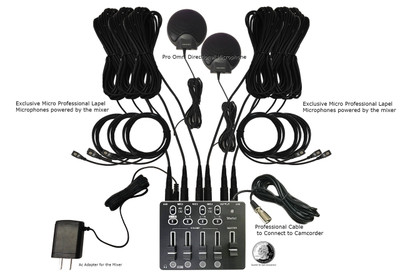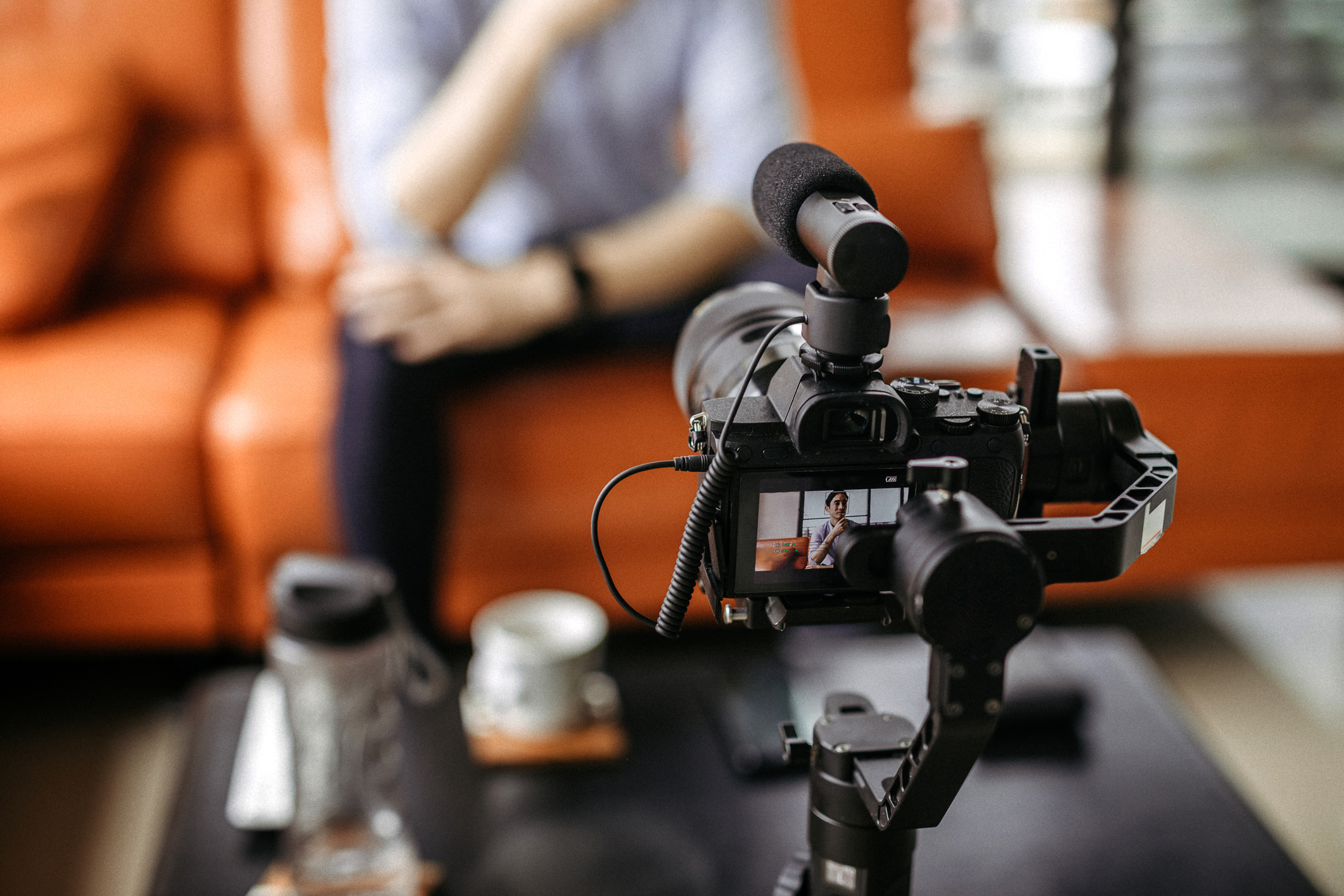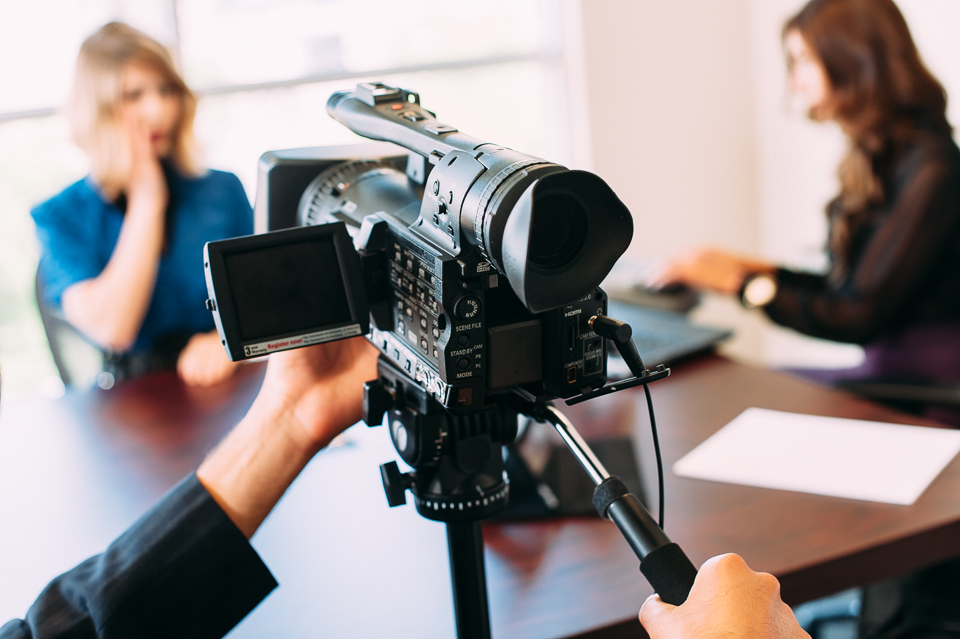How legal video depositions improve witness believability in litigation processes
The Importance of Legal Video Clip Depositions in Modern Legal Services: What You Must Know
Legal video depositions have actually ended up being essential in today's lawful landscape. They offer a multidimensional view of witness testimonies that traditional records just can not match. By capturing both spoken and non-verbal interaction, these depositions improve the overall understanding of a witness's reliability. However, the effectiveness of video depositions depends upon different variables, including compliance with lawful requirements and finest practices (legal video depositions). Checking out these elements exposes their real relevance in contemporary lawful services
What Are Legal Video Clip Depositions?
Legal video depositions offer as an important device in the lawsuits procedure. They involve taping witness testaments in a video layout, capturing both verbal and non-verbal communication. This approach allows lawyers to document the disposition, expressions, and responses of witnesses, offering a richer context for the testament. Generally performed in a controlled setting, these depositions are led by lawyers who ask concerns while a stenotype reporter records the dialogue. The resulting video can be critical for test preparation, as it allows attorneys to assess the reliability of witnesses and fine-tune their approaches. In addition, lawful video clip depositions can be used in different lawful contexts, ranging from civil conflicts to criminal situations. The auditory and visual aspects of video depositions enhance the presentation of evidence, making it an important component in the modern-day lawful landscape. On the whole, they add substantially to the effectiveness and efficiency of legal proceedings.

Benefits of Video Depositions Over Conventional Techniques
Video clip depositions supply numerous advantages compared to conventional methods of taking witness statements. One significant benefit is the ability to capture both audio and aesthetic aspects, offering a more comprehensive record of the witness's declarations. This twin format enhances clarity and permits attorneys to reference particular nuances throughout test prep work. Furthermore, video depositions facilitate remote engagement, making it less complicated for witnesses that may be inaccessible for in-person looks as a result of geographical restrictions or health issues.Moreover, video depositions can speed up the total deposition procedure, decreasing the moment and costs linked with traveling and logistics. They also boost ease of access, as videotaped depositions can be quickly shared amongst legal groups and referenced any time. This convenience adds to far better situation management and prep work. Generally, video depositions stand for a modern, efficient approach to collecting witness statements, lining up with the evolving needs of the lawful occupation.
The Role of Body Language and Tone in Testimonies

In lawful video depositions, body language and tone play vital functions in conveying a witness's reputation and credibility. Nonverbal hints can supply understandings into a witness's mood, affecting just how their testament is perceived. Comprehending the effect of these components is essential for jurors and lawyers alike when evaluating the reliability of a statement.
Nonverbal Interaction Insights
While verbal communication is frequently highlighted in lawful testimonies, nonverbal cues such as body language and tone play a crucial role in communicating credibility and emotion. Observers of depositions might note that a witness's pose, motions, and facial expressions can considerably affect assumptions of reliability. Constant eye get in touch with might indicate self-confidence, while preventing gaze can suggest dishonesty or discomfort. The tone of voice-- its pitch, speed, and volume-- can present sensations of sincerity or unpredictability. Lawyers must be attuned to these nonverbal signals, as they usually supply critical context that complements talked words. Recognizing these nuances can boost the performance of depositions and influence the result of lawful process.
Emotional Tone Impact
The emotional tone shared throughout legal statements significantly influences just how a witness is perceived. Body language, vocal inflections, and face expressions play crucial roles fit the narrative of a testament. A witness showing self-confidence with consistent eye call and a calm tone can infuse a sense of reliability and interaction. Alternatively, signs of stress and anxiety, such as fidgeting or an unsteady voice, may result in uncertainty concerning their account. The subtleties of psychological expression can influence the analysis of facts, making it crucial for legal professionals to identify these hints. In video clip depositions, the auditory and aesthetic parts integrate, highlighting the relevance of psychological tone in communicating sincerity and reliability within the legal process.
Credibility and Dependability
An essential variable in developing reliability and reliability during testaments hinges on the witness's body language and tone of voice. Observers usually rely upon non-verbal hints-- such as eye contact, stance, and motions-- to assess a witness's genuineness. A witness who preserves eye call and presents open body language might be regarded as even more honest and reputable than one that stays clear of eye contact or appears closed off. Furthermore, tone of voice plays an important role; a steady, calm tone can reinforce the reliability of the statement, while variations in pitch or quantity may increase doubts. Ultimately, the mix of body movement and singing tone greatly influences how a witness's declarations are obtained and analyzed in a lawful context.
Ideal Practices for Carrying Out Video Clip Depositions
Carrying out video clip depositions needs cautious preparation and implementation to guarantee a efficient and clear presentation of testament. It is vital to select a silent, well-lit area to minimize disturbances and safe optimum video quality. The devices must be examined beforehand, consisting of electronic cameras, microphones, and illumination, to avoid technical concerns throughout the deposition.Next, events included must examine the layout and procedures in advance, seeing to it that everybody comprehends their duties. The deponent ought to be briefed on the procedure, including exactly how to react plainly and concisely.Additionally, maintaining a specialist attitude throughout the session is essential. This consists of avoiding speaking over one another and confirming that all questions are guided suitably. It is important to videotape the deposition in a format that allows for simple playback and evaluation, maintaining the integrity of the testament for future usage.
Lawful Factors To Consider and Conformity Issues
Just how do lawful factors to consider and conformity problems impact the efficiency of video clip depositions? Attorneys should navigate a complex landscape of guidelines, guaranteeing that video clip depositions comply with administrative regulations and standards. Conformity with laws worrying personal privacy, permission, and taping approaches is essential. Getting specific approval from all events involved is required to prevent lawful repercussions.Additionally, the admissibility of video clip proof in court can pivot on compliance with procedural requirements. Guaranteeing that the equipment used meets technical requirements is likewise crucial, as inadequate top quality can undermine the deposition's reliability.Moreover, lawyers must know any type of specific state laws that govern video depositions, as these can vary significantly. Failing to deal with these considerations can not just threaten the honesty of the deposition but likewise impact the total instance technique, inevitably impacting the customer's lawful results.
Exactly How Video Depositions Influence Court Understanding
While video depositions can offer as effective tools in lawful proceedings, their influence on court assumption is significant. The auditory and aesthetic elements of video recordings supply jurors with an extra detailed understanding of witness behavior, credibility, and emotional actions. This multimedia technique can improve the jurors' capacity to examine the integrity of testimony contrasted to typical text-based transcripts.Moreover, video depositions allow jurors to observe like this body language, tone of voice, and faces, all of which can affect their interpretation of the witness's declarations. The visibility of a witness on screen can humanize them, promoting compassion and link, which may sway jurors' viewpoints. Conversely, a witness who appears undependable or incredibly elusive on video clip might lead to negative understandings that affect a court's decision. Ultimately, the dynamic nature of video depositions plays an important function fit just how jurors analyze proof and reach their judgments.
The Future of Video Depositions in Legal Method
As improvements in technology remain to improve the lawful landscape, the future of video clip depositions is positioned for substantial advancement. Innovations such as expert system, online truth, and boosted video clip conferencing devices are expected to improve the deposition process and enhance availability. Lawyers may make use of AI-driven analytics to analyze witness integrity and case stamina much more effectively.Moreover, the integration of digital fact can enable juries to experience immersive simulations of depositions, providing deeper context and understanding. Additionally, the fad towards remote depositions is most likely to continue, using better adaptability for attorneys and clients alike.As remote job becomes progressively stabilized, video depositions will likely become conventional practice, lowering costs and time restrictions related to typical approaches. Generally, these technical advancements promise to improve the performance, performance, and accessibility of video depositions in legal method, eventually transforming exactly how attorneys plan for test.
Often Asked Concerns
Just How Much Do Legal Video Clip Depositions Generally Cost?

Can Video Depositions Be Used in Any Kind Of Kind Of Case?
Video depositions can be utilized in numerous sorts of instances, including civil, criminal, and family members law. Their versatility allows lawyers you could try these out to existing witness testaments effectively, adjusting to the certain needs of different legal circumstances.
What Equipment Is Needed for a Video Deposition?
To perform a video deposition, crucial devices includes a top quality electronic camera, microphone, lighting, and a dependable recording tool. Additionally, a computer with modifying software program may be essential for post-production and formatting the last video clip.
The length of time Does a Typical Video Deposition Last?
A typical video clip deposition lasts between 2 to four hours, depending on the intricacy of the situation and the variety of inquiries postured. Extensive sessions may take place, but breaks are typically incorporated for individual comfort.

Are Video Depositions Admissible in Court?
Video clip depositions are usually admissible in court, supplied they stick to legal requirements and regulations of evidence. Their use improves quality and maintains witness statement, assisting in the judicial process throughout hearings and tests. Lawful video depositions have actually come to be crucial in today's lawful landscape. Furthermore, lawful video clip depositions can be used in numerous lawful contexts, ranging from civil disagreements to criminal situations. Additionally, video clip depositions facilitate remote involvement, making it simpler for witnesses that may be inaccessible for in-person appearances due to geographical restrictions or wellness issues.Moreover, video depositions can expedite the overall deposition process, reducing the time and expenses linked with traveling and logistics. Guaranteeing that the tools used fulfills technological requirements is additionally vital, as poor high quality can weaken the deposition's reliability.Moreover, attorneys should be aware of any certain state legislations that govern video depositions, as these can differ greatly. In addition, the trend toward remote depositions is most likely to persist, using better adaptability for lawyers and clients alike.As remote work ends up being increasingly normalized, video clip depositions will look at this now likely end up being conventional method, reducing expenses and time restrictions associated with typical approaches.